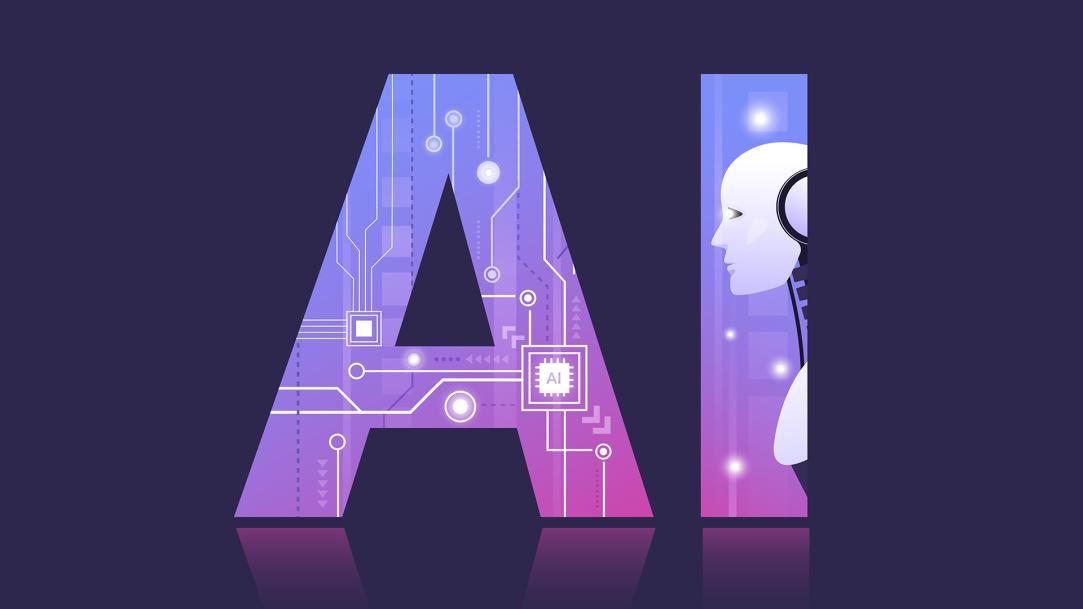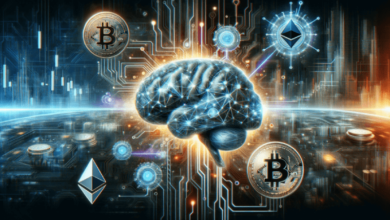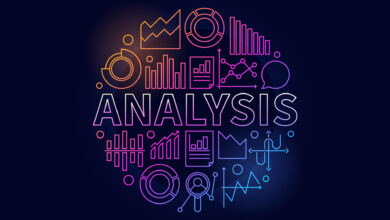Artificial Intelligence and Blockchain a Powerful Combination for Crypto

The Evolution of Artificial Intelligence and Blockchain
Artificial Intelligence (AI) and Blockchain have individually revolutionized various industries, but their convergence is unlocking new possibilities, especially in the realm of cryptocurrencies. AI, with its ability to mimic human intelligence and make informed decisions, has transformed the way we analyze data and automate processes. On the other hand, Blockchain technology provides a decentralized and transparent framework for secure transactions and data storage. The combination of these two groundbreaking technologies has the potential to reshape the crypto landscape.
Understanding the Synergy Between Artificial Intelligence and Blockchain in the Crypto Space
When AI and Blockchain merge, they create a powerful synergy that enhances the capabilities of cryptocurrencies. AI algorithms can analyze vast amounts of data, identify patterns, and make accurate predictions, enabling traders to make informed decisions and maximize profits. Blockchain, with its immutable and decentralized nature, ensures the integrity and security of crypto transactions, while AI enhances the efficiency and speed of these transactions. Together, they address challenges such as scalability, privacy, and fraud detection in the crypto space. In this article from Forvest’s Blog, we will explore the profound impact of combining AI and Blockchain and delve into the exciting possibilities it presents for the future of cryptocurrencies.
How Artificial Intelligence Enhances Blockchain in Crypto
Improved Security and Privacy in Cryptocurrency Transactions
Artificial Intelligence (AI) plays a crucial role in enhancing the security and privacy aspects of cryptocurrency transactions conducted on blockchain networks. By leveraging AI algorithms, blockchain systems can detect and prevent fraudulent activities, identify suspicious patterns, and strengthen encryption techniques. AI-powered cybersecurity solutions can analyze vast amounts of transaction data in real-time, making it possible to identify potential threats and protect user information. Furthermore, AI can improve the privacy of cryptocurrency transactions by enabling techniques like zero-knowledge proofs, which allow for the verification of transaction validity without disclosing sensitive information.
Efficient Data Analysis and Pattern Recognition for Crypto Trading
AI’s advanced data analysis capabilities are instrumental in empowering crypto traders and investors. By employing machine learning algorithms, AI can analyze large volumes of historical and real-time market data, identify trends, and make accurate predictions. This enables traders to make informed decisions, optimize their trading strategies, and maximize their profits. AI algorithms can also recognize complex patterns that are not easily identifiable by humans, providing valuable insights into market behavior and potential investment opportunities.
Optimizing Blockchain Consensus Mechanisms with AI Algorithms
Consensus mechanisms are fundamental to the functioning of blockchain networks, ensuring agreement among participants on the validity of transactions. AI algorithms can enhance these consensus mechanisms by optimizing their efficiency and effectiveness. For example, AI can be used to develop algorithms that dynamically adjust block sizes, transaction fees, and network parameters based on network conditions and user requirements. This allows for better scalability, reduced transaction confirmation times, and improved overall performance of the blockchain network.
Enhancing Scalability and Performance in Blockchain Networks with AI
Scalability has been a significant challenge for blockchain networks, limiting their potential for widespread adoption. However, AI offers promising solutions to enhance scalability and performance. AI algorithms can analyze network data, identify bottlenecks, and optimize resource allocation to improve transaction throughput and reduce latency. By dynamically adjusting network parameters based on real-time conditions, AI can ensure efficient utilization of network resources, enabling blockchain networks to handle a higher volume of transactions without sacrificing performance or security.
The combination of Artificial Intelligence and Blockchain technology opens up new horizons for the crypto space. With improved security, efficient data analysis, optimized consensus mechanisms, and enhanced scalability, AI brings substantial benefits to the blockchain ecosystem, making it more robust, intelligent, and capable of supporting the demands of a rapidly evolving crypto landscape.
Use Cases of Artificial Intelligence in Blockchain-based Cryptocurrencies:
Smart Contract Automation and Self-Executing Transactions
Artificial Intelligence (AI) brings automation and intelligence to the execution of smart contracts in blockchain-based cryptocurrencies. Smart contracts are self-executing agreements that automatically enforce the terms and conditions encoded within them. By integrating AI into smart contracts, complex conditions can be evaluated, and actions can be executed without the need for human intervention. AI algorithms can analyze real-time data, trigger events based on predefined criteria, and facilitate seamless, secure, and efficient transactions on the blockchain.
Fraud Detection and Prevention in Crypto Transactions
With the increasing popularity of cryptocurrencies, ensuring the security and integrity of transactions has become crucial. AI plays a significant role in fraud detection and prevention in the crypto space. AI-powered algorithms can analyze transaction patterns, detect anomalies, and identify potential fraudulent activities. By continuously monitoring and learning from data, AI systems can adapt to evolving threats and provide real-time alerts to users and organizations. This enhances the overall security of cryptocurrency transactions and helps protect users from malicious activities.
Personalized Trading Strategies and Predictive Analytics
Artificial Intelligence empowers cryptocurrency traders and investors with personalized trading strategies and predictive analytics. By analyzing historical and real-time market data, AI algorithms can identify patterns, trends, and correlations that can be used to develop customized trading strategies. AI systems can learn from user preferences, risk appetite, and market conditions to provide personalized investment recommendations. Additionally, AI algorithms can make accurate predictions regarding price movements, market volatility, and investment opportunities, enabling users to make informed trading decisions.
Decentralized Autonomous Organizations (DAOs) Powered by AI
Decentralized Autonomous Organizations (DAOs) are blockchain-based entities that operate without traditional hierarchical management structures. AI technologies can enhance the functionality of DAOs by automating decision-making processes and optimizing resource allocation. AI algorithms can analyze large volumes of data, identify patterns, and generate insights that facilitate efficient governance and decision-making within DAOs. Furthermore, AI can enable DAOs to adapt and evolve based on real-time market conditions, ensuring their sustainability and effectiveness.
The integration of Artificial Intelligence into blockchain-based cryptocurrencies offers exciting use cases and transformative possibilities. From automating smart contracts to detecting fraud, providing personalized trading strategies, and powering decentralized organizations, AI enhances the efficiency, security, and intelligence of blockchain systems. These applications demonstrate the potential of AI to revolutionize the crypto space, making it more accessible, secure, and user-friendly for participants worldwide.
Challenges and Future Prospects of AI and Blockchain Integration in Crypto
Ethical Considerations and Bias in AI-driven Crypto Systems
As artificial intelligence (AI) becomes increasingly integrated with blockchain technology in the crypto space, ethical considerations and bias emerge as significant challenges. AI algorithms are trained on data, and if the data used for training contains biases or reflects unethical practices, it can perpetuate those biases in decision-making processes. Ensuring ethical AI-driven crypto systems requires careful data selection, algorithm transparency, and ongoing monitoring to mitigate potential biases and promote fairness.
Regulatory and Legal Implications of AI in Blockchain Technology
The intersection of AI and blockchain in cryptocurrency realm presents complex regulatory and legal challenges. The decentralized and borderless nature of blockchain clashes with traditional regulatory frameworks, raising questions about jurisdiction, data privacy, intellectual property rights, and accountability. Regulators need to adapt to these technological advancements and establish appropriate guidelines and regulations to foster innovation, protect consumers, and address potential risks associated with AI-driven blockchain applications.
Scalability and Computational Requirements for AI-enabled Blockchains
AI integration in blockchain technology introduces additional computational requirements and scalability concerns. AI algorithms often require significant computational power and resources to process large volumes of data. Blockchain networks, especially those with consensus mechanisms like proof-of-work, face scalability limitations due to computational requirements and network congestion. Overcoming these challenges involves developing optimized algorithms, exploring alternative consensus mechanisms, and leveraging emerging technologies like distributed computing to enable efficient AI-enabled blockchains.
Exploring Future Innovations and Collaborations in AI and Blockchain for Crypto
The future prospects of AI and blockchain integration in the crypto space are filled with possibilities for innovation and collaboration. Advancements in areas such as federated learning, homomorphic encryption, and trusted execution environments can address privacy and security concerns in AI-driven crypto systems. Collaborations between AI and blockchain experts, researchers, and developers can lead to novel solutions for scalability, interoperability, and governance in decentralized networks. Additionally, exploring the integration of AI with emerging blockchain technologies like Web3 and decentralized finance (DeFi) opens avenues for new applications and user experiences in the crypto ecosystem.
While challenges exist, the potential benefits and future prospects of AI and blockchain integration in the crypto industry are immense. Addressing ethical considerations, navigating regulatory landscapes, optimizing scalability, and fostering collaboration will contribute to the responsible and effective use of AI in blockchain technology, unlocking new frontiers in the decentralized and intelligent future of cryptocurrencies.
Conclusion
The integration of artificial intelligence (AI) and blockchain technology in the crypto space holds immense promise for the future. By harnessing the synergies between these two transformative technologies, we can unlock advancements in security, efficiency, and user experience.
Forvest, a leading AI and blockchain company, is at the forefront of driving innovation in this domain. Their groundbreaking research and development efforts have paved the way for novel applications that enhance the security, scalability, and privacy of cryptocurrencies.
Furthermore, the comparison between Ethereum Vs Bitcoin Indicator, two prominent cryptocurrencies, highlights the potential of AI and blockchain integration. Ethereum’s smart contract capabilities combined with AI algorithms enable automated and self-executing transactions, fostering a new era of efficiency and transparency. On the other hand, AI-powered analytics and predictive algorithms can enhance Bitcoin trading strategies, optimizing investment decisions and maximizing returns.
As we move forward, it is crucial to embrace the synergy between AI and blockchain, leveraging their strengths to overcome challenges, navigate regulatory landscapes, and drive technological advancements. By doing so, we can shape a future where cryptocurrencies powered by AI and blockchain technology revolutionize industries, empower individuals, and pave the way for a decentralized and intelligent financial ecosystem.
Rating of this post
Rate
If you enjoyed this article, please rate it.



